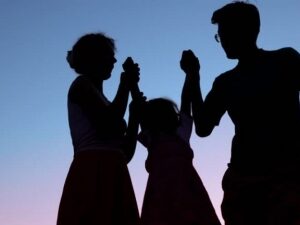The term “gender identity” refers to each people deeply held internal and unique experience of gender, which may or may not match the sex assigned at birth. Gender identity also includes one’s perception of one’s own body and other bodily processes, as well as additional gender manifestations including dress, speech, and mannerisms. The more specific term “trans” is used to describe people who identify as a different sex from the one that was assigned to them at birth. The term “gender-diverse” is used to describe people whose gender identity, including their gender expression, is at odds with what is perceived to be the gender norm in a life.
Meaning of Trans
The transgender population is extremely diverse. Others may identify as non-binary, genderqueer, gender non-conforming, agender, bigender, or other identities that represent their particular experiences. As part of our transition, some of us take hormones or have surgery, while others may alter our pronouns or look. In a survey conducted by the HRC Foundation and the University of Connecticut, about three-quarters of Trans kids identified as something other than simply “boy” or “girl.” People who identify as transgender are those whose gender identity, gender expression, or behaviour does not correspond to the gender to which they were biologically assigned.
Challenges faced by Trans community
Although the transgender movement has made major strides over the past ten years, raising public awareness and winning substantial legislative triumphs, Trans people still have to deal with overt discrimination, a lot of violence, and poor health outcomes. Tran’s individuals of colour frequently experience significantly worse health and economic results as they negotiate numerous oppressive systems. Below, we’ve highlighted a few crucial issues:
Health – Transgender persons have severe health inequalities, including shocking HIV infection rates, a shortage of basic care (including specialized, transition-related healthcare), and a high number of suicide attempts.
Economic effects of prejudice against transgender persons include high rates of poverty and unemployment, discrimination in the educational system, and homelessness. Black and Latinx transgender individuals experience poverty at a rate of approximately three and a half times that of the general U.S. population, while trans people are more than twice as likely to live in extreme poverty.
Security – Physical violence against transgender persons, particularly Black transgender women, is alarmingly common. This is especially true for transgender people who work in the sex industry and other illegal or underdeveloped economies.
Civil Rights – Because transgender persons have a wide range of legal needs, it is crucial that their civil rights are recognized and upheld. To name just a few of these demands, there are immigration rights, safeguards against employment discrimination, and identity documents that truly reflect who they are.
Discrimination, harassment, and stigma: In the United States, support for trans rights climbed from about a quarter of the population about five years ago to 62% by the year 2019. Despite these advancements, there is still a lot of stigma around the trans community because they have spent more than a century being associated with mental illness, social deviation, and sexual predatory behaviour.
If you are searching for “psychiatrist near me” connect with TalktoAngel an online counselling platform and connect with the best online counsellors and Online counsellor.





